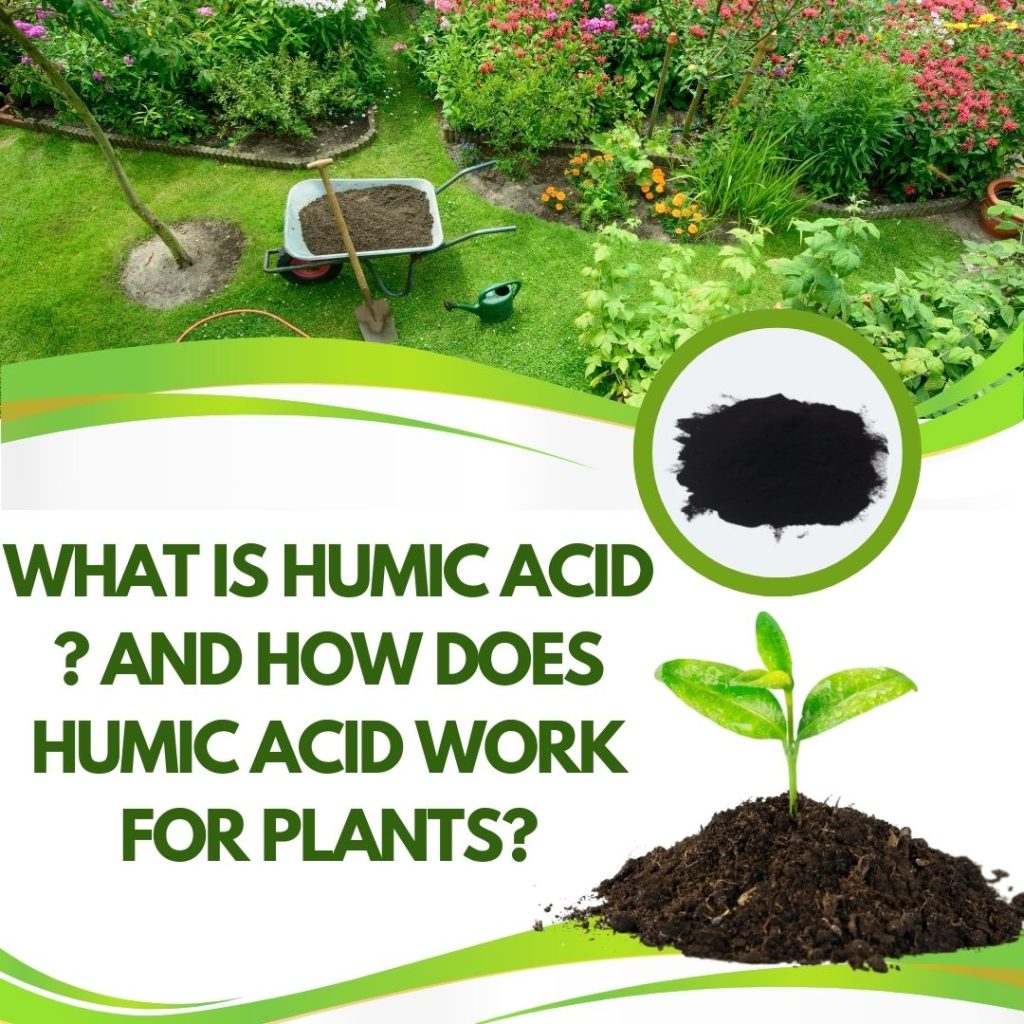Blog
What is Humic Acid ? And How Does Humic Acid Work For Plants?
What is humic Acid ? and How Does Humic Acid Work For Plants?
Humic acid, a natural organic compound, holds a crucial role in supporting healthy soil and promoting robust plant development. It’s a primary constituent of humus, which forms as organic matter from plant and animal decomposition breaks down in the soil. Humic acid offers various advantages for both soil and plants.
How Humic Acid Benefits Plants:
- Enhanced Nutrient Uptake: Humic acid acts as a facilitator by chelating, or binding to, essential nutrients like iron, calcium, and magnesium. This chelation process improves the availability of these nutrients to plant roots, ensuring efficient absorption and a consistent supply of vital elements for plant growth.
- Soil Structure Improvement: Humic acid contributes to soil structure by binding soil particles together, promoting soil aggregation. This discourages soil erosion and compaction, allowing plant roots to penetrate deeper into the soil. This, in turn, results in better water infiltration and aeration.
- Increased Cation Exchange Capacity (CEC): Humic acid is pretty amazing because it helps the soil do a better job of holding and swapping positively charged ions (we call them cations). These include important elements like ammonium (NH4+), potassium (K+), and calcium (Ca2+). So, it basically makes the soil more efficient at using and sharing these nutrients. In basic terms, this ensures that vital nutrients are easily available for plant absorption.
- Stress Resistance: This fertilizer enhances a plant’s ability to withstand environmental stress factors like drought, salinity, and extreme temperatures. It promotes the development of root hairs, improving water and nutrient absorption, while also stimulating the production of stress-related proteins.
- Fostering Biological Activity: Humic acid supports beneficial microbial activity in the soil, acting as a food source for soil microorganisms, encouraging their growth enhancing their effectiveness in decomposing organic matter and enriching the soil.
- pH Regulation: This natural compound helps regulate soil pH by acting as a buffer, preventing rapid shifts in pH levels. This is essential for maintaining optimal nutrient availability to plants, as different nutrients are more readily accessible within specific pH ranges.
- Improved Seed Germination: When employed as a seed treatment or soil conditioner, this fertilizer can boost seed germination rates. It provides a favourable environment for seeds to sprout and develop strong root systems.
Short Note:-
In summary, humic acid’s value in the soil is undeniable as it significantly contributes to improved plant health and growth. Its role in increasing nutrient availability, enhancing soil structure, and supporting microbial activity fosters better crop yields and overall plant vitality. Also, because it can help plants handle tough conditions and makes seeds sprout better, people like to use humic acid in both organic and regular farming.
Where Can I Buy It?
You can find humic acid products in many different stores and online. Garden centres, agricultural supply shops, and home improvement stores typically carry them. Additionally, you’ll find a variety of options on specialized agricultural and gardening websites. To ensure you’re getting a quality product, it’s wise to buy from reputable sources like The Green Growth Agro Industries. Consider researching different brands and consulting with experts in agriculture or gardening for recommendations tailored to your specific needs before making a purchase.

